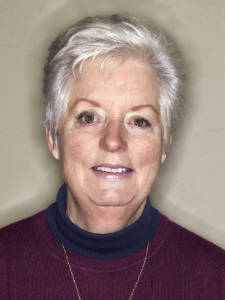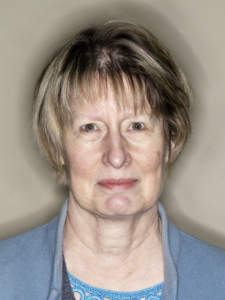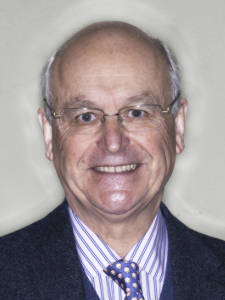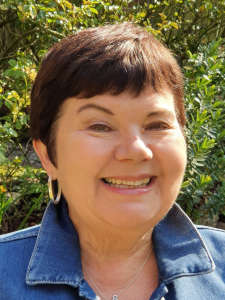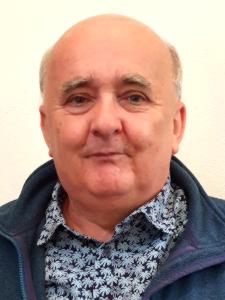Dear Readers
During these beautiful, sunny, spring days with cloudless blue skies and glowing sunsets, I have noticed, particularly as the sun is beginning to set and I am sitting at my dining table having my evening meal, the number of aircraft which are over-flying England, either coming from, or going into, the west. Where have they come from – Canada, America, Greenland or Iceland and where are they going? Perhaps to European countries or the Middle East, and vice-versa. My imagination pictures all those sets of feet on the aircraft floors above my head! The vapour trails are mostly silver, changing to gold or deep pink as the sun sets.
My thoughts went back to the Wise Men following the star and the shepherds in the fields seeing the star before they saw the Heavenly Host. If the star was a comet, it too, would have a trail, though not of vapour. What would they have made of our present-day abundance of vapour trails? It seemed to me that there were far more than usual, but then we so often have clouds in the sky which would prevent us seeing them so clearly. Would those men and women of old have been frightened, or just in awe of the sight?
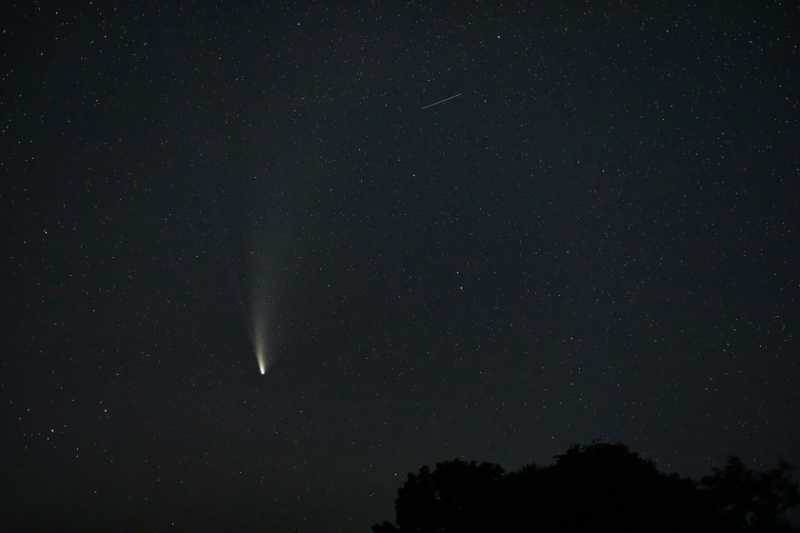
As I write, Easter weekend is approaching – a time of sorrow on Good Friday and then glorious celebration on Easter Day. The flower team will be working hard to fill the church with colour and brightness. I hope all those who came to church over the Easter period enjoyed them and the services and also, that you enjoyed some hot cross buns and/or some chocolate!
We are now into May with all the lovely new life around us. Will you be dancing around the maypole? Or perhaps you will be following the gardening tips from Cecily McGregor in the Potting Shed; or even, perhaps, making Poppy’s Stuffed Aubergine dish followed by Helen’s Nutty Biscuits (see the recipes in this edition). But whatever else you do, I hope you enjoy reading your copy of Outlook.
Sylvia Clark
Editor
From the Vicarage
The costs of war are immense, especially to those who pay the ultimate price with the loss of their lives.
2025 marks the 80th anniversary of the end of the Second World War.
Thursday 8 May is Victory in Europe Day (VE Day). This is the day the German forces surrendered to the Allied powers.
Friday 15 August is Victory over Japan Day (VJ Day). This is the day Japan surrendered, in effect bringing World War two to an end.
In King Charles’ Easter message, he praised all the humanitarian workers who provide aid during times of war and disasters. In his message on the meaning of Easter, the King spoke of the "paradox of human life" in which the heroism of humanitarian workers is contrasted with terrible scenes of suffering in war.
A new Humanitarian Medal has been launched, honouring those who risk their own lives to help others in emergencies and war zones, and the King hailed their selflessness and compassion.
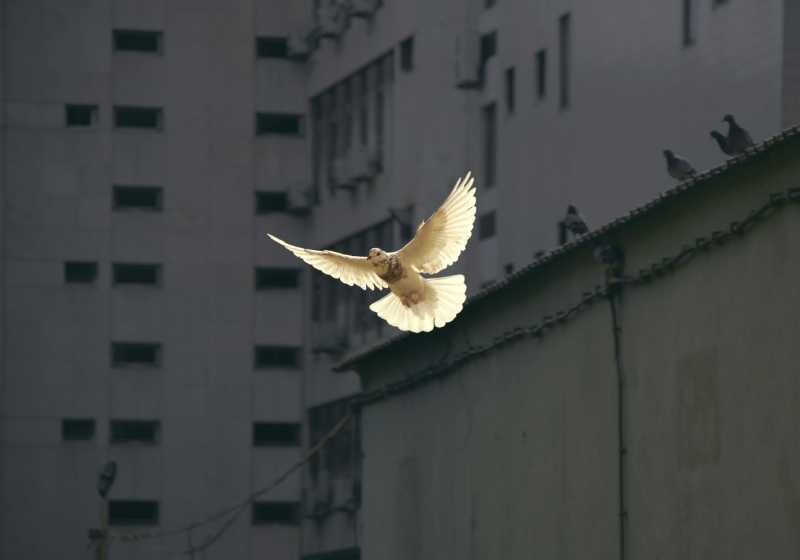
On 8th May, our bellringers at Hughenden Church will join countless bell towers across the land in ringing their bells for half an hour, by way of celebration, to mark this anniversary.
We cannot fail to be moved when images of war and human suffering appear on our television screens – whether it depicts the war in Ukraine, Gaza, Israel, the West Bank or Lebanon, Sudan, or other lands near and far.
Peace often comes at a great cost and we should never take that sacrifice for granted, nor forget it.
Sacrifice is at the heart of the message of the Christian Gospel. Our loving heavenly father, sending his Son to earth to fulfil the prophecies that promised a messiah, a saviour, who would die on a cross, though without sin, to draw all people to himself.
The hope that is found in putting our trust in Jesus Christ, promises new life, sins forgiven, and an invitation to follow in the footsteps of Jesus. That is the ultimate sacrifice which, as a Christian, I will be forever thankful for.

Growing Hope
Earlier this year Joe Cook from Growing Hope came to speak at our morning services and her thoughtful and moving talk made a deep impact on many of us who heard it.
Most of us know Growing Hope as the charity that provides free therapies for children with additional needs, and their website growinghope.org.uk provides more information about their work.
Our local clinic is based at St James’ church in Downley, where Growing Hope therapists help children who are on long waiting lists for NHS treatment. In addition to this vital work, the charity also supports the families of those children. One of the ways they do this is by running a course for parents called When Dreams Change, to help parents accept the situation they find themselves in when they have a child with additional needs. Joe spoke about this course, which uses the Old Testament story of Joseph as an illustration.
Joe also read a very thought-provoking poem by Emily Perl Kingsley, an American author whose son has Downs Syndrome, about the experience of having a child with additional needs. The poem is called Welcome to Holland and our editor has obtained permission to publish it.
Charlotte Tester
Welcome To Holland by Emily Perl Kingsley
I am often asked to describe the experience of raising a child with a disability - to try to help people who have not shared that unique experience to understand it, to imagine how it would feel. It's like this ……
When you're going to have a baby, it's like planning a fabulous vacation trip - to Italy. You buy a bunch of guide books and make your wonderful plans. The Coliseum. The Michelangelo David. The gondolas in Venice. You may learn some handy phrases in Italian. It's all very exciting.
After months of eager anticipation, the day finally arrives. You pack your bags and off you go. Several hours later, the plane lands. The flight attendant comes in and says, "Welcome to Holland.”
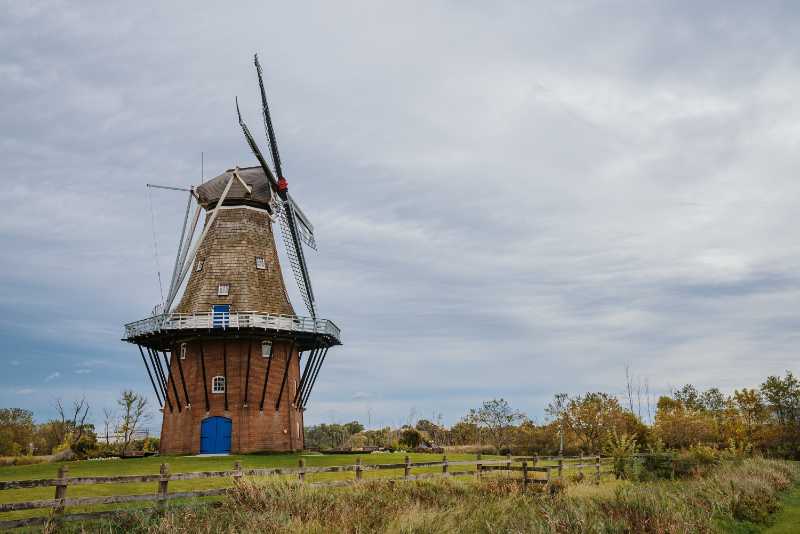
"Holland?!?" you say. "What do you mean Holland?? I signed up for Italy! I'm supposed to be in Italy. All my life I've dreamed of going to Italy.”
But there's been a change in the flight plan. They've landed in Holland and there you must stay.
The important thing is that they haven't taken you to a horrible, disgusting, filthy place, full of pestilence, famine and disease. It's just a different place.
So you must go out and buy new guide books. And you must learn a whole new language. And you will meet a whole new group of people you would never have met.
It’s just a different place. It's slower-paced than Italy, less flashy than Italy. But after you've been there for a while and you catch your breath, you look around … and you begin to notice that Holland has windmills … and Holland has tulips. Holland even has Rembrandts.
But everyone you know is busy coming and going from Italy … and they're all bragging about what a wonderful time they had there. And for the rest of your life, you will say "Yes, that's where I was supposed to go. That's what I had planned."
And the pain of that will never, ever, ever, ever go away … because the loss of that dream is a very very significant loss.
But … if you spend your life mourning the fact that you didn't get to Italy, you may never be free to enjoy the very special, the very lovely things … about Holland.
© 1987 by Emily Perl Kingsley
All rights reserved
Reprinted by permission of the author
Christian Aid Week
11-17 May
The work of Christian Aid should need no introduction. As a church we have regularly supported its annual fundraising campaign, Christian Aid week, and we have contributed to its emergency appeals regularly, most recently those for Ukraine and for Gaza.
For Christian Aid week this year, which runs from 11-17 May, the charity is highlighting the effect of climate change on some of the poorest people on earth, and how, with the help of Christian Aid and its partners, their lives can be changed for the better.
Loving our Global Neighbours
It helps people like Aurelia, who lives in Guatemala, in Central America. Guatemala is a country dealing with immense challenges:
More than half of the population works in agriculture, yet Guatemala is a hunger hotspot.
Guatemala has one of the highest rates globally of stunted development in children.
Guatemala is one of the 10 countries in the world rated most vulnerable to climate emergencies.
In the indigenous farming communities of the Alta Verapaz region uncertainty looms. The communities’ Iivelihoods, traditions and very survival are threatened by deadly droughts, savage storms and industrial plantations that monopolise the water supply and deforest the land.
The climate crisis is causing both the dry and rainy seasons that would once arrive with predictability, to intensify and shift erratically. As a result, vital crops are failing, plunging farming families into hunger and poverty.
Holding hope in her hands
Aurelia is an inspirational farmer of the Q'eqchi' (pronounced Co-WAY-chee) community. She has eight children, many grandchildren and lives with one of her sons and his wife.
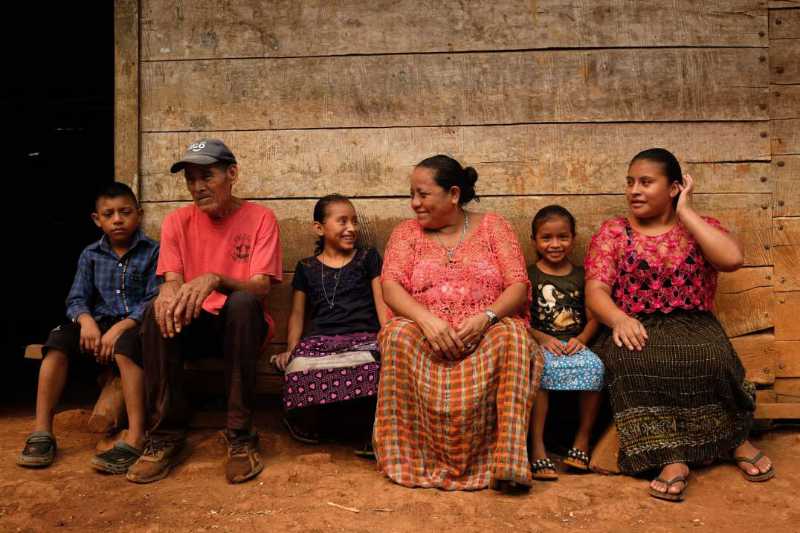
Aurelia with her grandchildren, father and daughter-in-law
Aurelia moved to the region when she was two years old. Things were very different then: 'There was an abundance of trees, plants and wild animals, such as monkeys. There was lots of water close to the community, and it wasn’t that hot.'
The water sources that were near Aurelia's home have been drained dry by heatwaves and industry. Now, collecting water for her crops is laborious and time-consuming. Extreme weather is destroying Aurelia's farm. She worries deeply about how much produce she'll have to eat and sell: 'Climate change has been killing our crops, and this is our food.'
It's testimony to Aurelia's endurance and hope that she proactively set out to find solutions. When Aurelia discovered the work of our partner, Congcoop, she put herself forward to attend the agricultural training on offer.
With Congcoop's support, Aurelia has learned to adapt her farming to the changing climate. She now grows climate-resilient crops, produces fertiliser, and builds rainwater collection systems. By changing the way she farms, Aurelia's fighting the climate crisis and restoring her family's food security. She's also leading her community by sharing the skills and knowledge she's gained.
It's vital that our programme with Congcoop continues, so that more farmers like Aurelia can build their resilience to extreme weather and take back control of their harvests.
How can you help?
To find out more and about how you can contribute to support Christian Aid and its partners’ work, please go to their website: christianaid.org.uk/appeals/key-appeals/christian-aid-week/aurelias-story
In addition, Christian Aid envelopes will be available in church, and you can put cash or cheques in to be forwarded to the charity. Thank you for your support.
Mission Support Group
What Queen Victoria Commanded!
The disappearing regalia: the story continues …
So Disraeli’s banner, helm and sword were carefully taken down, after remaining in place since Queen Victoria commanded that they were brought to the church from Westminster Hall; well, in the same place, apart from a short visit by the banner many years ago to the Royal School of Needlework (RSN) for restoration.
When we saw the banner close up, it appeared to be made of paper such was the delicacy and fragility of it, within its protective netting.
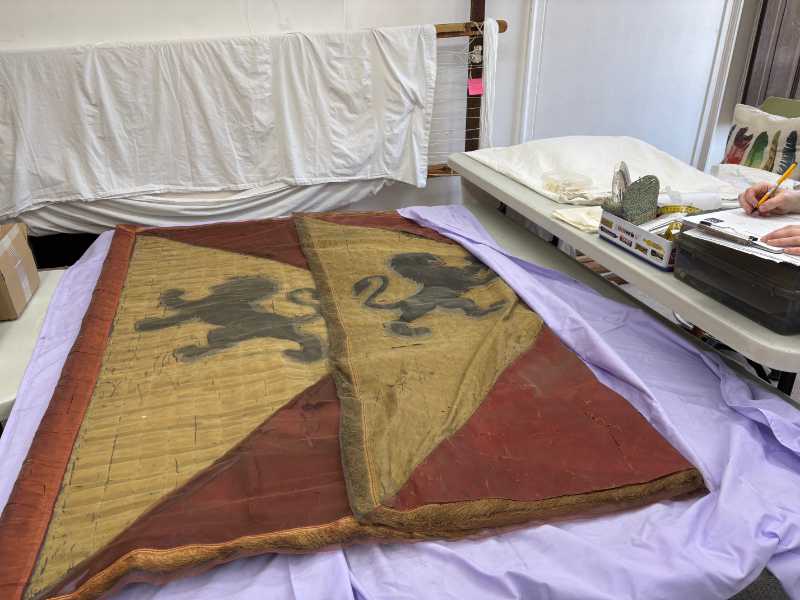
The helm was separated into parts: wooden helmet and castle, and red fabric ornamentation, with wooden baubles and red tassels attached.
The banner and the fabric parts of the helm were carefully wrapped to be transported to the Royal School of Needlework in Hampton Court Palace. The wooden parts, including the sword, were wrapped and taken to a Secret Location in Naphill for storage.
We had previously arranged with RSN to take the items to them on a day when we could get the car close to the building (Monday or Tuesday during term time). We had to send the measurements of the car as we were permitted entrance through a narrow (but not all that narrow, as it turned out) gate, whimsically called The Flower Pot Gate.
Susan Brice and I set out quite early, because:
I live in perpetual fear of being late for things,
I have no sense of direction and, though I have a really kind Sat Nav, I don’t always trust it,
We wanted to have time for coffee.
We duly arrived with plenty of time to spare and located the Flower Pot Gate by asking in the coffee bar: the owner happened to be a volunteer at Hampton Court and was very impressed that we had special admission privileges!
So, we duly drove up at the (or shortly before: see a. above) allotted time. We called for security to let us in. They did and instructed us to drive up to some very ornate gates. Panic: was I supposed to go through these; they WERE VERY narrow. But no, we were met by Gemma, with whom I had been in contact, and we transported the items gingerly into one of the RSN’s workshop.
And there what delights met our eyes. Three people were working on various fabrics, choosing thread from a huge variety of colours (some rescued from dilapidated materials), another was sorting a collection of coloured threads for workshops. (I hadn’t realised that the RSN is an actual school teaching skills both in person and online.)
After showing Gemma the items, we learned that:
the paper-thin banner was in fact made of silk which had dried out and needed rehydrating.
the marks on the inside of the helm fabric (and previously unseen) had been added to make the material resemble ermine.
that if they undertook the work, they would remove all the dirt and RETURN IT TO US in a bag!
that because they could not accept liability for loss or damage, they would engage the same emergency procedure as they did for King Charles’ and Queen Camilla’s Coronation Robes. (I felt that if it was good enough for Their Majesties it was good enough for St Michael & All Angels.)
After being reassured about safekeeping, we were shown some very special items of gold work: the sample of the pattern for Queen Elizabeth II’s Coronation robes, and the same (but much more ornate in fact) for Queen Camilla’s showing hundreds of different flowers, including the rose, thistle, daffodil and shamrock of the four UK nations.
Gemma explained what qualifications were required to work at the school and how students were taught. The RSN also is building up an on-line Stitch Bank which aims to digitally collect every type of stitch from around the globe and preserve them; there are currently 475 listed. (see royal-needlework.org.uk/rsn-stitch-bank)
I think both Susan and I could have stayed all day poking about or looking round the grounds, but it was time for lunch by the river.
And then the journey home, which (see b. above) only involved circling two roundabouts twice, not having believed which way we were being directed.
Jane Tyrer
A Visit to Brazil
During the month of February, Roger and I were fortunate to holiday in Brazil.
We spent the first five days in Rio de Janeiro with our daughter Charlotte, husband Luther and our 6-year-old grandson, Caio. Luther is Brazilian and the family lives in Berlin. Able to work from home they have, for some time, been encouraging us to visit Brazil, where they spend the first 2-3 months of the year near to Luther’s mother in Saquarema.
Brazil is an enormous country with an equally large population many of whom, we were surprised to discover, do not speak English. So, it was a real bonus having a Portuguese speaker in our party. In the first week we stayed in an apartment close to Copacabana Beach and visited many of Rio’s tourist destinations, including Sugar Loaf Mountain and the imposing statue of Christ The Redeemer, a Brazilian cultural icon and global symbol of Christianity. From these heights one gains amazing views over the whole of the city which, although interesting, is a ‘full on city’ that is very noisy and hot day and night.
Of the many places we visited, Bonito in the Mato Grosso do Sul State was my favourite. It lies in the south of the Pantanal near Paraguay. Brazil routinely attracts headlines and criticism for its deforestation of the Amazon, but Bonito (the name means beautiful in Portuguese) is a designated, well-organised ecotourism destination. This region, known as the Serra da Bodoquena National Park, is professionally managed to preserve the natural ecosystems of great ecological relevance, scenic beauty, providing environmental education as well as ecotourism. It took two internal flights to reach, and we stayed a week in a lovely rural hotel with a pool. In the mornings we awoke to the amazing sound of birds, including the very loud Chaco Chachalaca (a big, brown bird that sits high in the trees) and a whole variety of Parrots as well as the even noisier red and green Macaws.
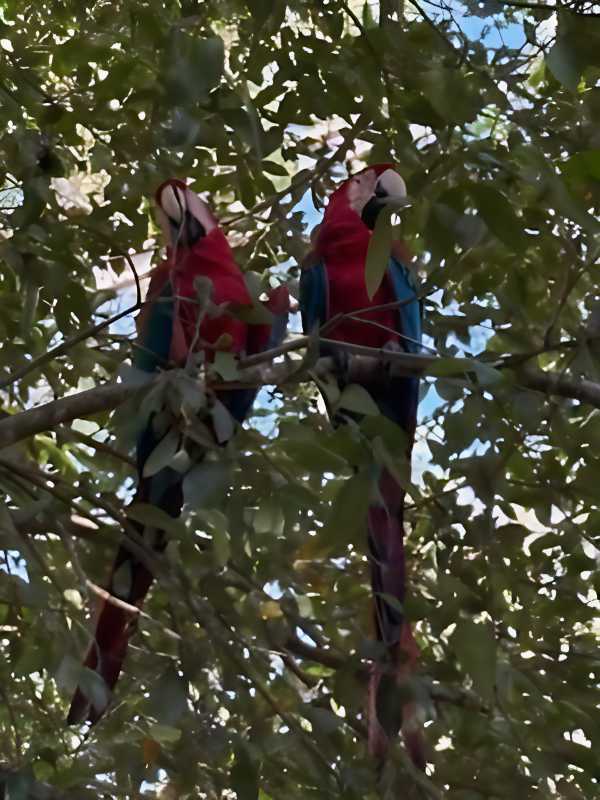
In addition to its wildlife, the area is renowned for its lush forests, clear rivers, waterfalls and many underground lakes and caves. All the activities in Bonito are in rural areas and undertaken with a guide, so booking the activities is essential. Luther had booked an activity for every day, so we were busy.
Here we snorkeled in the rivers. Arriving at the farm headquarters, we were briefed by our guide, put on wet suits, life jackets and neoprene booties and set off on a bumpy truck ride to the trailhead. After a 30-minute walk through the riparian forest, we arrived at the Rio Olho D’agua springs, a massive natural pool of crystal-clear water where, in places, you could see water bubbling up from the riverbed. We put on our masks and snorkels and literally floated downstream in this immense natural aquarium surrounded by countless fish and passing through beautiful cerrado vegetation for two hours. The first day we did this, our grandson was a bit nervous and followed us in the boat but the second day he snorkeled all the way with us, which made us so proud of him. At the end of the tour, we had a delicious lunch at the farm, all organic food grown on the farm and then relaxed in the hammocks.

In many areas there are environmental projects for the protection of the wildlife and forests, such as providing the Hyacinth Macaws with nest boxes which have been so successful that they have increased in number. We watched with amusement as a group of Capuchin monkeys chased the Hyacinth Macaws! We saw many birds including Hummingbirds, Toucans, Vultures, a Southern Caracara and in Rio many magnificent Frigate Birds and an Albatross. One of the farms had a rescue centre hosting Giant Anteaters and Capybaras, both of which are now endangered.
On other days we had various activities booked, including a venture into the Gruta do Lago Azul (Blue Lake Grotto), a gentle walk down to the cave entrance and then a slow two hundred metres descent down a staircase cut into the rock of the ravine. What initially seemed an ordinary cave, transformed into one of the most iconic sights in Brazil, when a beautiful turquoise lake, framed by large stalactites and stalagmites, appears at the bottom. We visited another underground cave system, and our grandson loved it as we had to wear hard-hats.
We had a fantastic time and there are so many other aspects about which we could write. It never ceases to amaze me what a stunningly beautiful world the Lord has given us, and a heartfelt recognition of our responsibility to protect it.
Julia Grant
May Day: Unbridled Merriment
May is the month when the ancient pagans used to get up to ‘all sorts’! The Romans held their festival to honour the mother-goddess Maia, goddess of nature and growth. (May is named after her.) The early Celts celebrated the feast of Beltane, in honour of the sun god, Beli.
For centuries in ‘Olde England’ the people went mad in May. After the hardship of winter, and hunger of early Spring, May was a time of indulgence and unbridled merriment. One Philip Stubbes, writing in 1583, was scandalised: ‘for what kissing and bussing, what smooching and slabbering one of another, is not practised?’
Henry VIII went ‘maying’ on many occasions. Then folk would stay out all night in the dark rain-warm thickets and return in the morning for dancing on the green around the May pole, archery, vaulting, wrestling, and evening bonfires.
The Protestant reformers took a strong stand against May Day, and in 1644 May Day was abolished altogether. Many May poles came down - only to go up again at the Restoration, when the first May Day of King Charles’s reign was ‘the happiest Mayday that hath been many a year in England’, according to Pepys.
May Day to most people today brings vague folk memories of a young Queen of the May decorated with garlands and streamers and flowers, a May Pole to weave, Morris dancing, and the intricacies of well dressing at Tissington in Derbyshire.
May Day is a medley of natural themes such as sunrise, the advent of summer, growth in nature, and - since 1833 - Robert Owen’s vision of a millennium in the future, beginning on May Day, when there would be no more poverty, injustice or cruelty, but harmony and friendship. This is why, in modern times, May Day has become Labour Day, which honours the dignity of workers. And until recently, in communist countries May Day processions were in honour of the achievement of Marxism.
There has never been a Christian content to May Day, but nevertheless there is the well-known 6.00 am service on the top of Magdalen Tower at Oxford where a choir sings in the dawn of May Day. An old May carol includes the lines:
The life of man is but a span, it flourishes like a flower
We are here today and gone tomorrow - we are dead within an hour.
There is something of a sadness about it, both in words and tune, as there is about all purely sensuous joy. For May Day is not Easter, and the joys it represents have always been earth-bound and fleeting.
From The Parish Pump
Mothers’ Union
Butterfly House
At our 1st April Mother’s Union meeting we had a very interesting speaker from South Bucks Hospice.
Richard Chalmers told us the history of the creation of the hospice in 1984. The charity has since moved to a purpose-built building in Totteridge which is called Butterfly House. The hospice provides day care for life-limiting or life-threatening illnesses. They also offer various complimentary therapies for the patient and their families.
The hospice is run as a charity and relies on donations and volunteers, only 4% of income coming from the NHS. For more details of the fantastic work they do, please visit sbh.org.uk
On 6th May our annual lunch will replace our usual meeting. However, at our meeting on 3rd June, our speaker will be Susan Brice who will be talking about ‘Quilts’. We meet on the first Tuesday of each month at 2 o’clock in Church House and all are welcome to join us.
Janet Booth
Holy Day in May
24th May - John & Charles Wesley, evangelists and hymn-writers
John and Charles Wesley were the founders of Methodism. Two of 19 children born to Samuel and Susannah Wesley of Epworth Rectory in Lincolnshire in 1703 and 1707, their father was the local rector, while their mother was a spiritual inspiration to her many children.
Both John and Charles went to Christ Church, Oxford (1720 and 1726). John was ordained, and Charles and some friends formed a ‘Holy Club’ while still at college. It consisted of men who dedicated themselves to Bible study, prayer, fasting and good works. Such regular disciplines soon earned Charles the nickname ‘Methodist’. The name stuck.
Both Charles and John felt called to the mission field, and so in 1735 they sailed to Georgia. Their time among Indians in America was not a success – they struggled for any real spiritual authority in their ministries. Feeling failures, they returned to England in some depression. John summed it up: “I went to America to convert the Indians; but, oh, who shall convert me?”
Then the Wesleys made friends with some Moravians. They stressed that salvation cannot be earned, but must be received by grace through faith in Christ. Charles was the first to experience this ‘true’ conversion, when on Pentecost Sunday, 21st May 1738, he wrote that the Spirit of God ‘chased away the darkness of my unbelief.’
Only three days later, on 24th May 1738, it was John’s turn. As he wrote in his journal: “In the evening I went very unwillingly to a society in Aldersgate Street, where one was reading Luther’s preface to the Epistle to the Romans. About a quarter before nine, while he was describing the change which God works in the heart through faith in Christ, I felt my heart strangely warmed.”
John and Charles Wesley then devoted the rest of their lives to sharing the Good News of Jesus Christ. In doing so, they turned England upside-down. When the established Church threw John out, he took to the fields, preaching to coal miners and commoners. His itinerant evangelism took him 250,000 miles on horseback and to preach over 40,000 sermons. His small ‘societies’ attracted some 120,000 followers by the time of his death.
Charles became the most prolific and skilled hymn-writer in English history, writing hymns that are sung widely today, such as ‘Love Divine, All Loves Excelling.’ In all, he wrote more than 6,000 hymns.
The legacy of the two brothers lives on. As well as Methodism, their teaching has widely impacted the holiness movement, the Pentecostal movement, and the charismatic movement.
From the Parish Pump
Helen’s Nutty Biscuits
(without nuts!)
I have had many positive comments about my home-made biscuits - a recipe given to me by my mum. I find the biscuits never turn out the same twice, because I can never remember what size cups I use!
Helen Peters

Ingredients
4oz soft margarine
1 small teacup of granulated sugar
1 level dessert spoon golden syrup
1 breakfast cup self-raising flour
1 breakfast cup rolled oats
1½ tbsp boiling water
½ tsp bicarb of soda
½ tsp vanilla essence
Pinch of salt
Method
Cream margarine and sugar. Add salt, vanilla essence and syrup – mix well together.
Dissolve the soda in boiling water and add to mixture.
Now mix in oats and flour and beat to a stiffish paste.
Place little heaps (teaspoon size) on grease proof baking sheet. Bake in a moderate oven (160C fan/325F) for about 15 minutes or until golden brown.
Nature Note
“But they that wait upon the Lord shall renew their strength; they shall mount up with wings as eagles, they shall run and not be weary, they shall walk and not faint”
Isaiah 40:13
A favourite scripture of mine for several reasons. Mostly of course because of the promise of renewal and new energy.
“Wait upon the Lord” means what it sounds like, filling your heart and mind with who God is and how He shows Himself to us. I guess it was a touch more evident in the days of the Old Testament writers who often used that phrase, after all there were no distractions like phones, TVs, radios, internet or blocks like traffic hum, light pollution, city fog. Just poke your head out of your tent to see the unbelievable night sky, the view just as dawn breaks, the silence as pure as a glass of freshly poured wine. The shepherd out on the hills - David.
Of course, the strength and majesty of a soaring eagle is a vivid picture that underlines the truth of Isaiah’s message; this is no wishful thinking but a spiritual reality as strong as it gets.
So what is an eagle? A bird of prey, yes. A large bird of prey, yes. A bird that has regal qualities, yes.
The scientific dudes amongst us have taken it upon themselves to ‘classify’ all living things including eagles. The most regal of these they call aquila.
We have one aquila, modern Israel has four. Aquila chrysaeetus is our Golden Eagle and at 2.3m wingspan is awesome to see soaring overhead. It’s beaten for size by the White Tailed Eagle which at 2.4m wingspan is the largest British bird of prey. This is currently not considered an aquila (the scientific dudes are constantly reviewing their classifications) and is known as haliaeetus albicilla. I remember seeing one for the first time and instantly knew why it’s known as ‘the flying door’ amongst birders. With huge broad wings, short wedge-shaped tail and little head projection, that’s exactly what it looks like. Its wings don’t appear to taper, long, broad and square ended with big ‘finger’ feathers sticking out of the ends. A fearsome sight if it targets you; don’t worry it aims for birds, animals up to lamb size (more of that later) and most likely fish of which I’m told grey mullet is catch of the day if around.
Unfortunately, both birds were driven to virtual extinction by habitat loss for goldies (deforestation and the increase of land for farm use) and persecution of both, particularly in the 1800s. In fact, white tails were wiped out completely. Now, thanks to dedicated professionals like Roy Dennis (look him up, he started with ospreys, recently red kites, currently white tails) we have a thriving population of white tails in the UK.
As I said last month, I’ve camped on Mull; what I didn’t say was that from our tent we could see a white tail’s nest 1k away to the right alongside our loch in a tall pine, with a goldie nest 2k away to the left on the other side of the same loch. The white tails were active feeding young, the goldies virtually absent. Inevitably we were away one day on a fruitless search for otters when we were told that a white tail had swooped down in front of our tent and taken a grey lag goose! Should please the nest occupants we thought.
Driving down a mountain valley we saw a guy peering at a distant object through his telescope.
Not ones to miss an opportunity we pulled over. He was quite animated so we zoomed in on the object. Coming into sharp focus was an immature eagle (almost black, a giveaway) tucking into some sort of prey with gusto. For some unknown reason he then decided to move to a different spot.
Then we saw it, he flew off carrying a lamb!
Of course we knew the farmer would be thinking that the eagle had predated his newly born lamb, but eagles take carrion so it may have been stillborn or died from some other cause. It’s worth pointing out that farmers will get government compensation for livestock lost to protected birds. Anyway, the bird obviously had as much delight in lamb meat as we do, although it wasn’t fussed about mint sauce or a herb crust!
Two weeks ago I was told that a white tail had turned up at the gravel pit at Little Marlow.
You know what it’s like when you sit on a pin or put your foot into a bath that’s way too hot, that was me, gotta go.
It was only there for that afternoon (sorry Julia and Roger) but to see such a bird in our locale!

If you study the head-on photo you will see a radio transmitter strapped to its back. This was an immature bird, born on Skye and relocated to The Isle of Wight last year.
Adults have pale head feathers as well as a white tail so you can see how the juvenile plumage stands out. Look at the ferocious yellow bill and bright yellow eye-ring that’s just about visible.
When I think of that bird, the goldies I’ve seen (and why not many others of our winged companions, although to be fair ‘to rise up with wings as a blue tit’ doesn’t have the same impact) that make effortless flight so enviable, their mastery of all they survey, it makes waiting on the Lord not only what I WANT to do, but what I NEED to do.
God be with you and may you soar with Him.
Mike Bevan
Bookends
Beyond the Airing Cupboard and Ian Rankin’s Edinburgh
When I set up my blog about books and reading a couple of years ago, I did of course need a name for it. Over a cup of coffee I played about with some rather obvious titles: cover to cover, turning the page etc etc. They had of course all been taken by existing blogs or radio and TV programmes. It became clear that I would have to think more laterally. I’m not quite sure where the airing cupboard idea sprung from but as soon as it did, well, it felt right. beyondtheairingcupboard.co.uk it was. I really like the word ‘beyond’ as it seems to me to suggest endless possibilities. As soon as the blog was up and out there, a couple of people emailed to say ‘you do know beyond the airing cupboard is already there?’ Well, I wasn’t about to change it all at that point, so what would be would be.
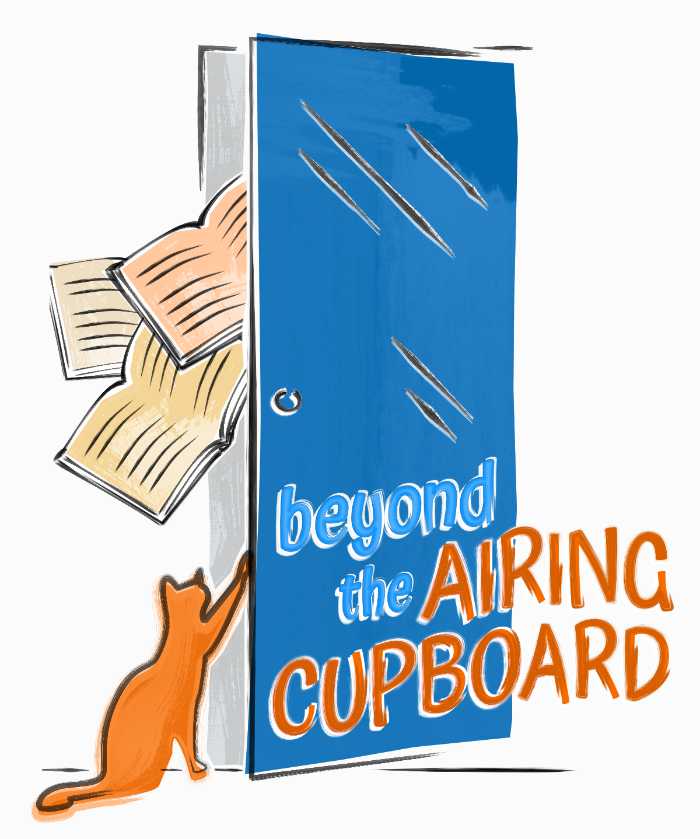
Eventually, I was curious enough to look and see what this other airing cupboard was all about. It is a book about cricket! Who would have guessed? I bought a copy on Biblio UK and have enjoyed it. I know a little about cricket, believe it or not, having spent summer weekends throughout my childhood in Sevenoaks in Kent at my father’s cricket club. He captained the second eleven and, remember, in the 1950s and 60s children followed their parents’ activities at weekends. Now it is very much the other way around. I know where silly-mid-on and silly-mid-off are and remember my father breaking his little finger when fielding in just such a position. I know what a maiden over is and how many balls there are in an over. Weirdly this changed from eight to six balls at just about the time when my cricketing weekends were at an end. Having impressed you with my sporting knowledge I will now tell you that this book is primarily a very gentle memoir, interesting and amusing and a book that can be enjoyed with zero understanding of this very English game. John Barclay was for some years the captain of Sussex County Cricket and later a manager for England cricket tours.
And of course, the airing cupboard, where I started. Well, John Barclay’s said cupboard was rather superior to mine I am sure, as it was at Eton! I imagine it as a small room with roomy shelves and plenty of space filled with soft piles of dormitory bed linen. And why did he retreat there? Certainly not for a warm reading place. As a promising Etonian cricketer he found that high expectations were being put upon him and the fear of failure grew strong in a teenager anxious to do his best and achieve. So, before matches, he would hide away in the airing cupboard and commune with his cricket bat, (I kid you not!) whilst trying to get into a strong mental state, one that was likely to get good results.
So, not my usual reading matter but an interesting diversion … and it would make a lovely gift for anyone even remotely interested in cricket.
OK, so if that doesn’t work for you then I offer you Ian Rankin and his indefatigable detective inspector John Rebus. I think in my head he is very scruffy but at one point it is made clear that he does know where the dry cleaners is so we are not anywhere near the realms of the disreputable and highly unpleasant Jackson Lamb played by Gary Oldman in Slow Horses, (watch it if you can.)
I often wonder when I read these books, numbers 15 and 16 now and still Ian Rankin keeps ahead of me, as to what I find the attraction is. I think it might be that the author knows his characters so very well, thus the dialogue is taut and real. John Rebus and his detective sergeant Siobhan Clarke are moving through their lives with all the usual questions and problems that we all encounter but their days and weeks are also consumed by their police work. Do they not have partners or stable relationships because of their jobs or is this a useful mask to hide the difficulties a full personal life would bring? Neither of the characters would have a good answer to that question.
Ian Rankin must, I think, know every alleyway in Edinburgh and he is the master of detailed descriptions that bring the city alive for the reader. The dark underside is there along with the intellectual and artistic milieu. They are separate, somewhat disparate threads that the author then weaves together.
‘Fleshmarket Close’ is book number 15 but maybe I enjoyed ‘The Naming of the Dead’ a little more (number 16). It is set against real events: the G8 meeting at Gleneagles in Scotland, the result of the application for the 2012 Olympics and the 7th July London bombings. Everyone is jostling for power and control, those within the criminal fraternity, the various levels of councils and government and within the police force itself. This is a complex plot with stylish, confident, satisfying writing from the masterly Ian Rankin. There are still many more to go but that will do me for now.
Susan Brice
May Recipe
Stuffed Aubergines (also called 'The Priest Has Fainted'!)
This recipe is one of my Mum's. She was a fantastic and natural cook but I don't know where she got the recipe from. I believe it is a Turkish recipe. She said it was called 'The Priest Has Fainted' because when the priest tasted it, he liked it so much he fainted! The internet has many different explanations for the origins of the name.
The recipe serves 4 people as a starter or 2 people as a main course. It is, of course, vegan and gluten free too. As a main course, I like this dish served with a baked potato and cheese.
Poppy Laigh

Ingredients
1 Onion (Chopped)
2 Large Aubergines
Salt and Pepper
3-4 tbsp of Vegetable Oil/Vegan Alternative
1 Clove of Garlic (Crushed)
(Optional: ½ Large Green Pepper - Chopped)
500g Ripe Tomatoes (Roughly Chopped)
½ tsp Cinnamon
1 tbsp Raisins
2 tbsp Chopped Parsley
½ tsp Sugar
Method
Halve the aubergines, score with a knife and sprinkle generously with salt.
Leave sandwiched between 2 plates with a weight on top for at least 30 minutes.
Rinse the aubergines and dry.
Scoop out the flesh leaving a 1 cm border all the way round and chop flesh roughly.
Heat 2 tablespoons of oil in a large, heavy pan and cook the onion, pepper and garlic for 5-10 minutes.
Add a little more oil and add the aubergine chunks.
Cook, stirring occasionally, until the aubergines are slightly browned.
Add the tomatoes, sugar, cinnamon, raisins and half the parsley.
Cook for a further five minutes.
Season with salt and pepper.
Put the aubergine shells in a shallow baking tin, brush with oil/vegan alternative and season with salt and pepper.
Pile the tomato mixture in the shells and top with parsley.
Bake in a preheated oven at 350°F or 180°C or Gas Mark 4 for 30 minutes.
From the Potting Shed
Dear Friends. May time! What a delight! Sometimes I think May is my favourite time of the gardening year. I have some honesty plants up against the kitchen wall; I love the purple flowers. Every year I hope they will last long enough to be out at the same time as my pretty pink weigelia. Sometimes it works and sometimes not.
My friend Maureen who lives down near you sent me an Easter card. Inside was a lovely photo of the magnolia in full flower in her garden and some camellias as well. Up here magnolias are of course a few weeks later and, well, camellias are always a bit iffy. Too many late frosts.
Last year a new teacher at Ruby’s school produced a maypole and taught groups of children some simple dances. All the old people in the village were amazed and delighted as that hadn’t been done for a couple of generations. Now it seems that a new tradition has been started and my friend Beryl and I went along to have a cup of tea and then watch the children perform in the playground. Ruby was very pleased with herself.
Afterwards, when they thought no one was looking, (and they weren’t!) little Seth and his mate Isaac decided they would have a go. Luckily my daughter noticed just in time and managed to stop Seth from tying the ribbons around Isaac’s neck. Ah well.
Enjoy your May time flowers my dears,
Until next time, yours,
Cecily MacGregor
Jobs for May
Sow annuals to fill in gaps in the borders from late summer into the autumn.
Plant up hanging baskets but keep in a greenhouse for the next few weeks.
Plant out summer bedding such as cosmos, nasturtiums and poppies after the last frost.
Fill gaps in shady borders with hostas and ferns.
Prune spring shrubs to keep them compact.
Sow small batches of salad leaves to give continuous pickings.
